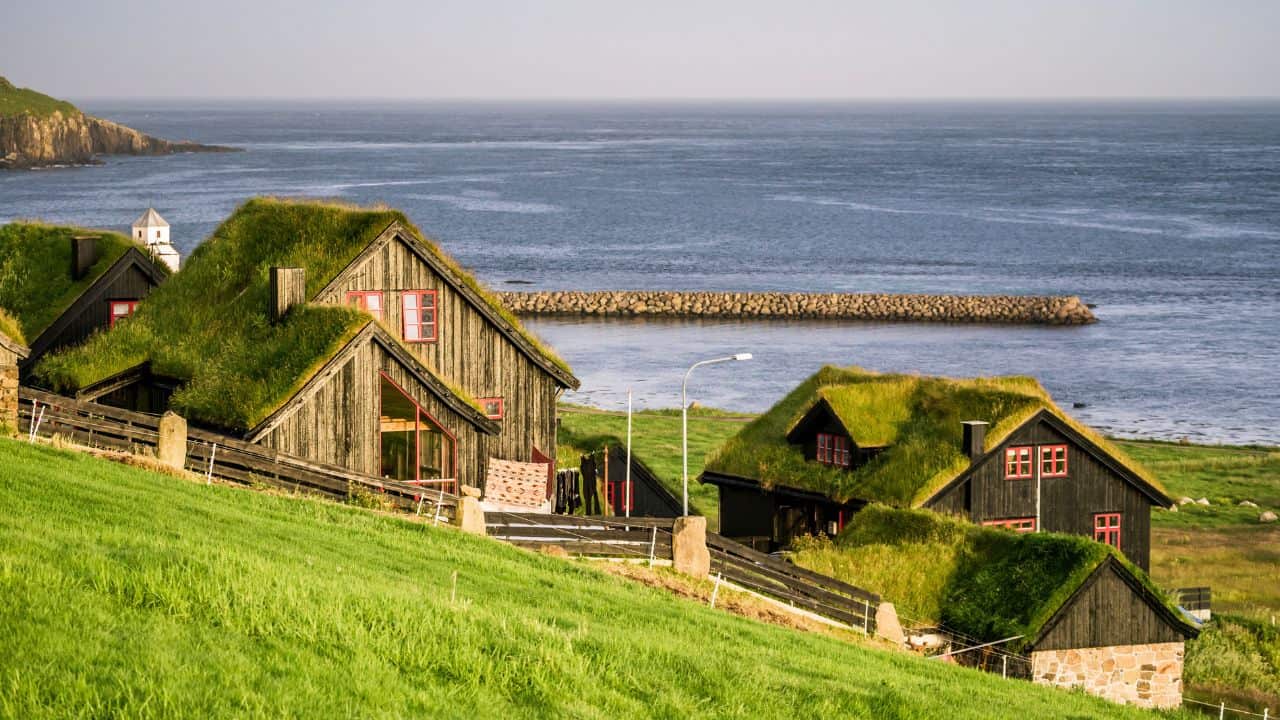Summer is just around the corner and we can almost sense the warm sunshine on our faces and the light drowsy evenings. It’s also time for summer holiday planning.
Whether you’re spending a week at the beach or going on a short weekend away, packing is always easier when you’re prepared. You can make better sustainable choices too.
From sunglasses to beach towels, it’s never been easier to swap in eco-friendly versions of top travel products. Here are our must-have summer travel essentials for a sustainable packing list.
13 Must-Have Summer Travel Essentials For Your Sustainable Packing List

1. Daypack
Once you arrive at your destination, you’ll want an easy and lightweight bag to keep all your essentials in.
We love Millican’s daypack collection which is designed to be taken anywhere come rain or shine. What’s more, they’re weatherproof and made to last so whether you’re backpacking or going on a casual mini break, they will see you through.
Choose from a range of colours styles and amount of pockets. Our favourite thing about them? The material is made from 100% post-consumer plastic waste!
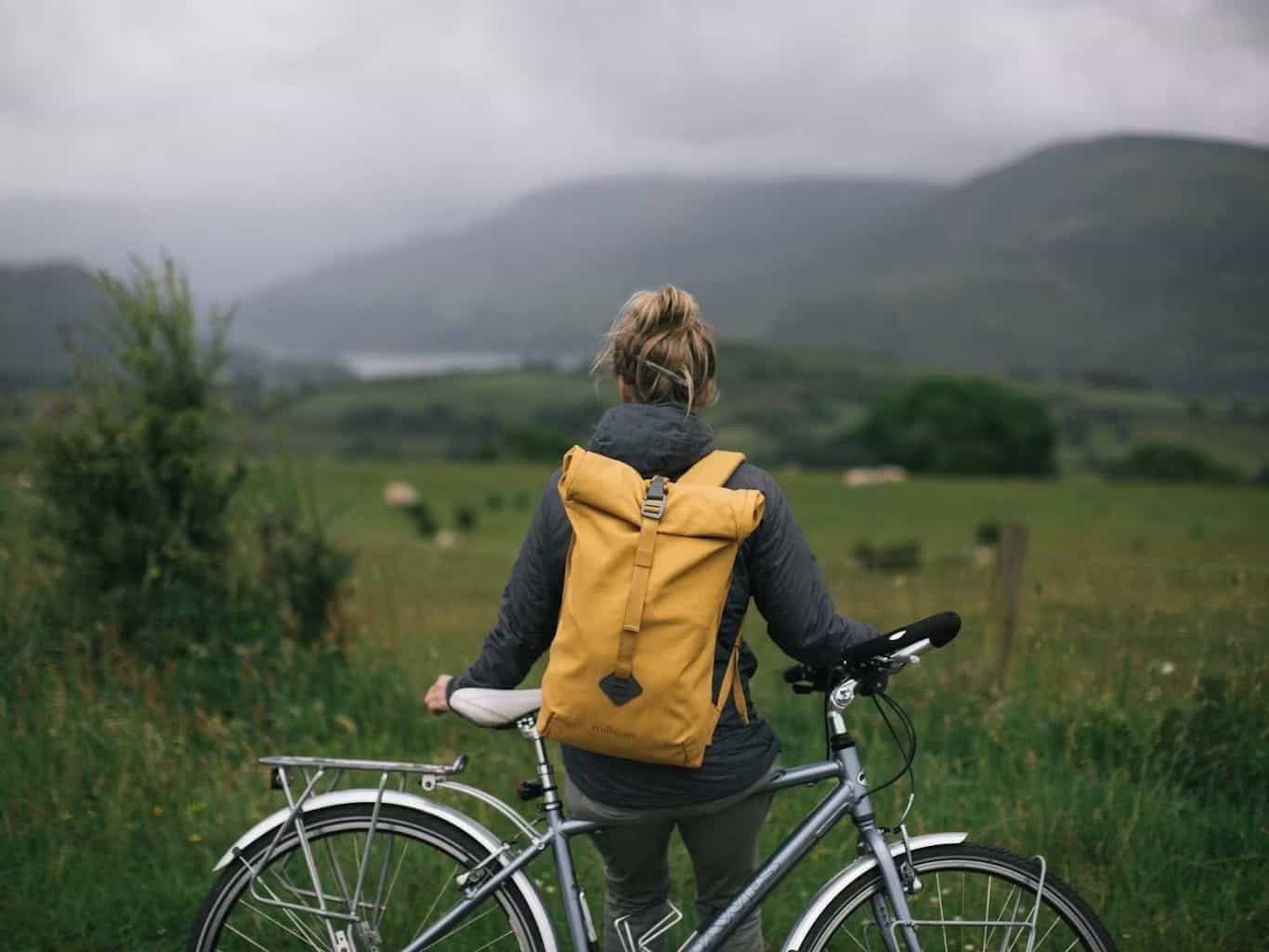
2. Sunglasses
It’s important to keep your eyes protected from the sun’s rays and Bambooka sunglasses are perfect for the job. Bambooka is a rather unique volunteer-run fashion brand.
All profits are donated directly to their partner charities. One of them called PEPE (People Empowered Preserved Earth) helps people in rural South Africa escape poverty. The other is Vision Aid Overseas which supports life-changing eye care around the world.
Bambooka’s frames are made from Moso bamboo and contain no toxic paints.
Once your old pair is damaged, you can send them back to Bambooka and you’ll get 25% off to spend on your next pair.
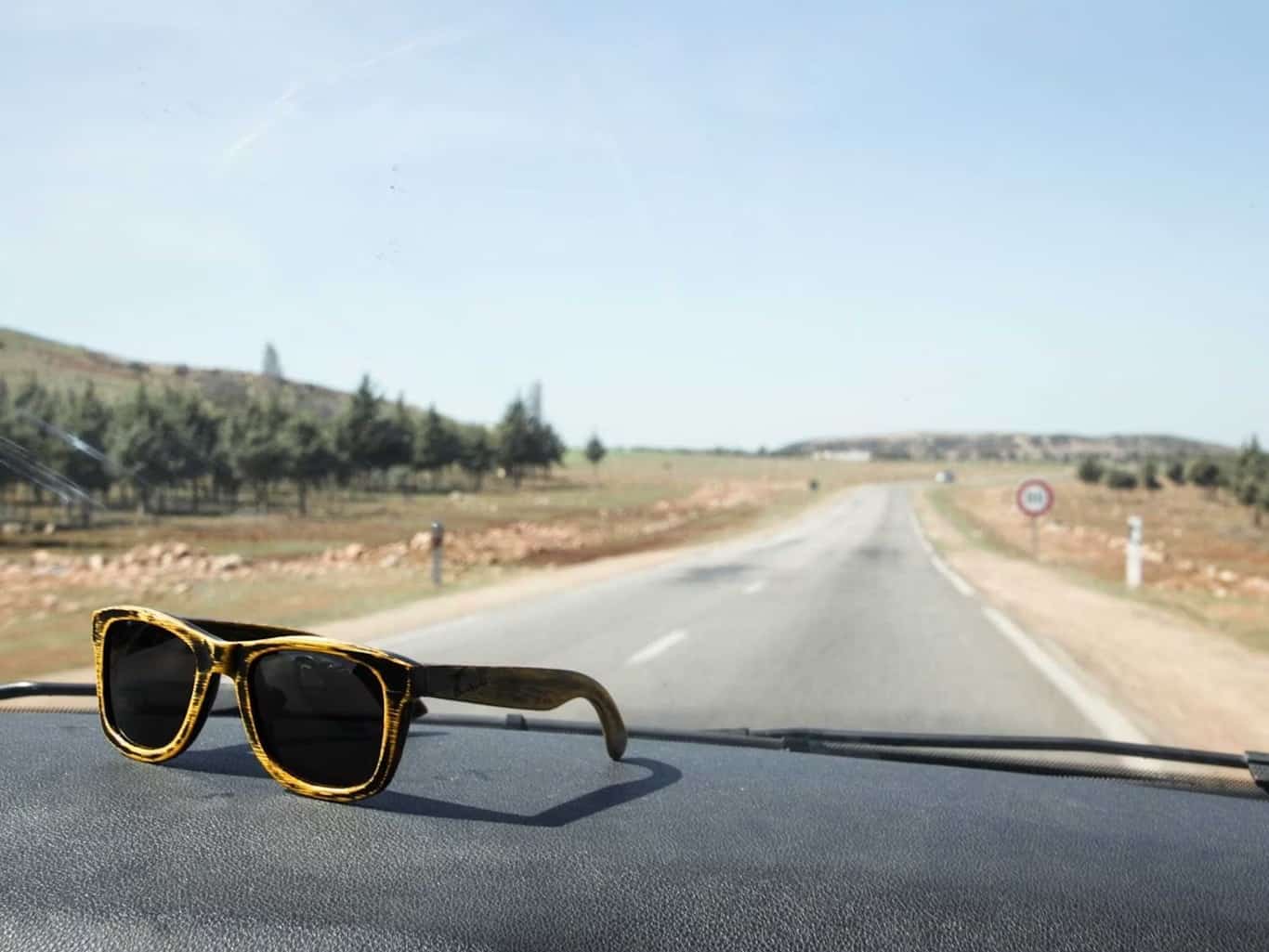
3. Watch
A trusty watch is a must-have to keep you on track of your itinerary. Nordgreen’s collection of beautiful Scandinavian watches make an elegant addition to any holiday outfit.
The Danish watch designers tap into their Nordic roots to create sophisticated watches with a strong sustainable focus.
Their eco friendly watches are made using high-quality materials that are guaranteed to stand the test of time. Each one also donates to one of three NGOs of your choice. The brand themselves are carbon-neutral and they use FSC certified packaging.

4. Food wraps
One of the best ways to save money and be more eco-friendly when you travel is to make your own food. Want an easy and non-bulky to carry your sandwiches or store your leftovers? Invest in a pack of colourful BeeBee & Leaf Wraps.
Originally made with beeswax, BeeBee Wraps have since expanded to incorporate plant-based wax LeafWraps which are approved by The Vegan Society.
These beautiful, multi-award-winning wraps help you store food and packed lunches without the need for clingfilm. They’re reusable too!
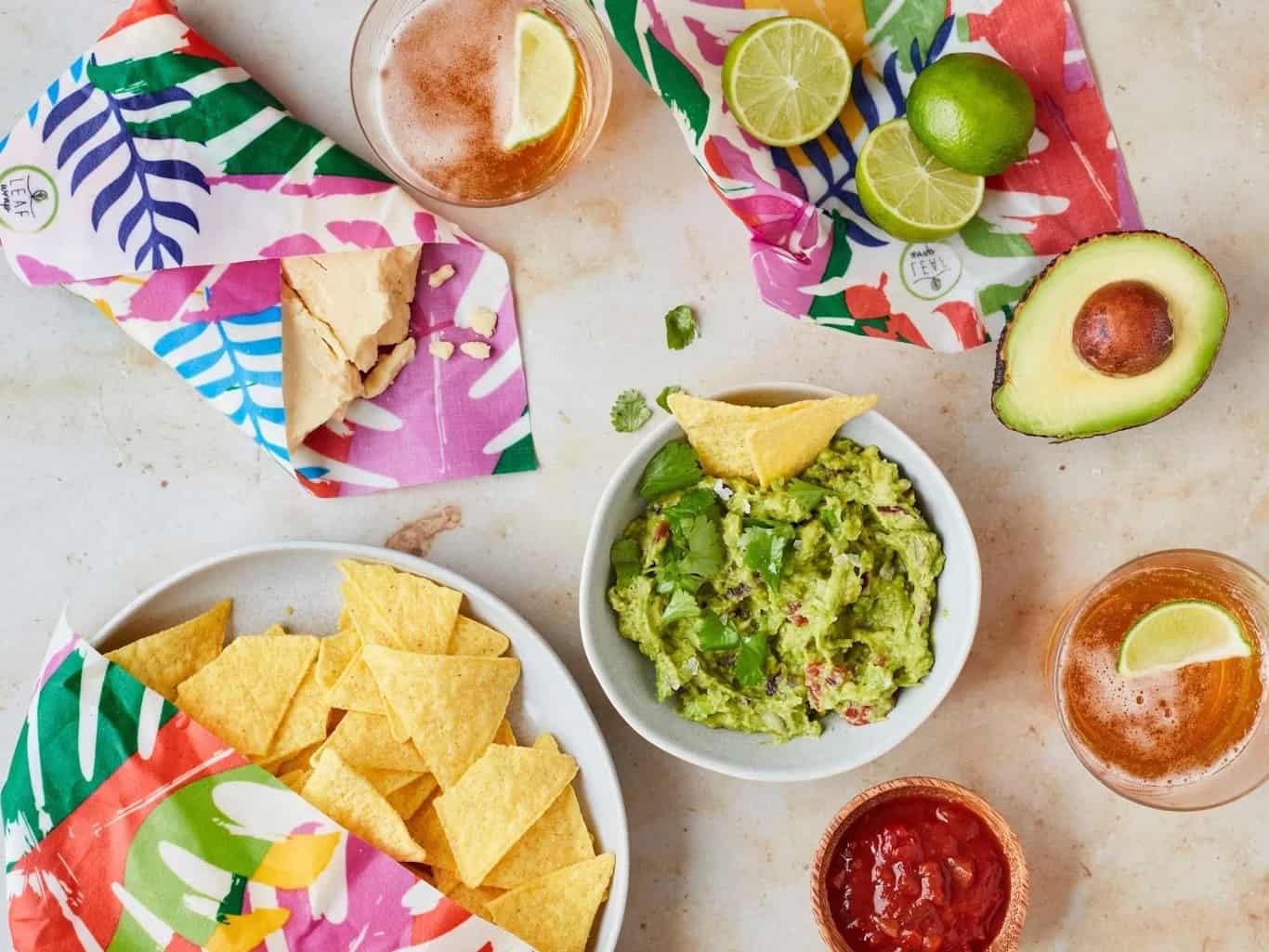
5. Wetsuit
Heading to the beach and a little worried about sea temperatures? If you want to get some swim time in, Finisterre’s wetsuits will keep you warm in the water.
The first B-Corp certified outdoor brand in the UK, Finisterre creates products that have a positive impact on the planet.
In particular, the Nieuwland Yulex Wetsuits for both men and women is made with a combination of materials including Yulex Pure™ which is a natural rubber material from an FSC certified source. It’s available from 28 April 2021.
Recycled polyester can also be found in the lining and exterior fabric.

6. Flip flops
Ocean Refresh are turning the tide on plastic waste with their unique range of sustainable footwear made entirely from recycled ocean plastic. The perfect choice for new summer kicks.
The brand’s new Spring/Summer collection turns the humble flip-flop into a must-have eco essential. Each pair is made from up to 1kg of ocean plastic waste, including up to 24 single-use bottles.
We love the range of vibrant colours to choose from such as Starfish Pink and Dune Yellow. On top of that, they’re anti-abrasive, anti-bacterial and have a cushioned Oceatex™ sole for comfort. They’re absolute must-have summer travel essentials.

7. Shampoo bar
Shampoo bars are the way to go for travel. They make it easier to pack light, you don’t have to worry about liquid allowances, spills or even those wasteful single-use plastic miniature toiletries.
weDo’s No Plastic Shampoo Bar gives you professional performance haircare with up to 80 washes. It’s also super lightweight which means you can easily slip it on your bag.
Your hair deals with a lot when you’re travelling, from pollution to heat, humidity and being on the go. weDo ensures that your locks are looked after with minimal hassle and makes your packing list that little bit more eco-friendly.

8. Sunscreen
Whether you’re heading to the beach, going on a hiking adventure or spending time in the city, sunscreen is vital for your health in the summer (as it is throughout the year).
However, every year between 6000 and 14,000 tonnes of sunscreen is washed into the sea. More of it enters the waterways through wastewater systems. The problem is chemical-based sunscreen harms coral reefs.
To protect your health and the planet, go for a mineral-based reef-safe sunscreen. We love Green People’s Scent Free Sun Cream.
The SPF30 is suitable for sensitive skin, cruelty free and it’s high in natural antioxidants. What’s more 20p of each sale of the product is donated to the Marine Conservation Society.

9. Beach towel
Add a splash of colour to your beach trip with SEP Jordan’s beautifully intricate hand-embroidered linen towels.
Each piece is unique and stitched by artisans from refugee camps in Jordan using traditional embroidery techniques. Every pattern tells a story of the individual who made it.
The Certified B Corporation, SEP works in accordance with the UN Sustainable Development Goals to bring thousands of refugees above the poverty line through economic independence.
The fabric is made from eco-friendly linen (which is also quick-drying!) and recycled materials are used as much as possible throughout the production process

10. Reusable water bottle
Ditch single-use plastic bottles in favour of a stylish leakproof and reusable bottle from Ohelo. We love that this 500ml bottle is as practical as it is pretty. It’s versatile too, keeping cold drinks cold for up to 24 hours and hot drinks hot for 12.
The stainless steel bottle BPA, BPS and BPF free, and has a lead free solder too. The super nifty handle makes the bottle easy to carry or strap to your bag when you’re on the go.

11. Headphones
Don’t forget the tech you need when you travel. And even headphones can now be made more eco-friendly, thanks to the handy guys at reboxed who specialise in rehoming secondhand technology (phones, headphones so far).
Each pair of Airbuds from reboxed has been through the brand’s extensive tech checks, comes with a six month guarantee and is 30% cheaper than new ones. Plus you’re keeping electronics out of landfill and cutting down on demand for new materials.
Plus pebble readers get 15% off when they use the code PEBBLE15 on spends over £170.

12. Jacket
Need a new summer jacket for your adventures? Napapijri’s Circular Series jackets are 100% recyclable as they’re made with only one type of material.
All fillings and trims are made of Nylon 6 which is a fabric made from ECONYL® Regenerated Nylon sourced from discarded fishing nets and other waste materials.
All materials are also vegan and have a Cradle to Cradle Certified Gold award which is the world’s most advanced standard for safe, circular and responsible products.
The Circular Series has a range for both men and women. Choose from the classic Circular Rainforest, Windbreaker, Puffer or Anorak in a variety of colours.
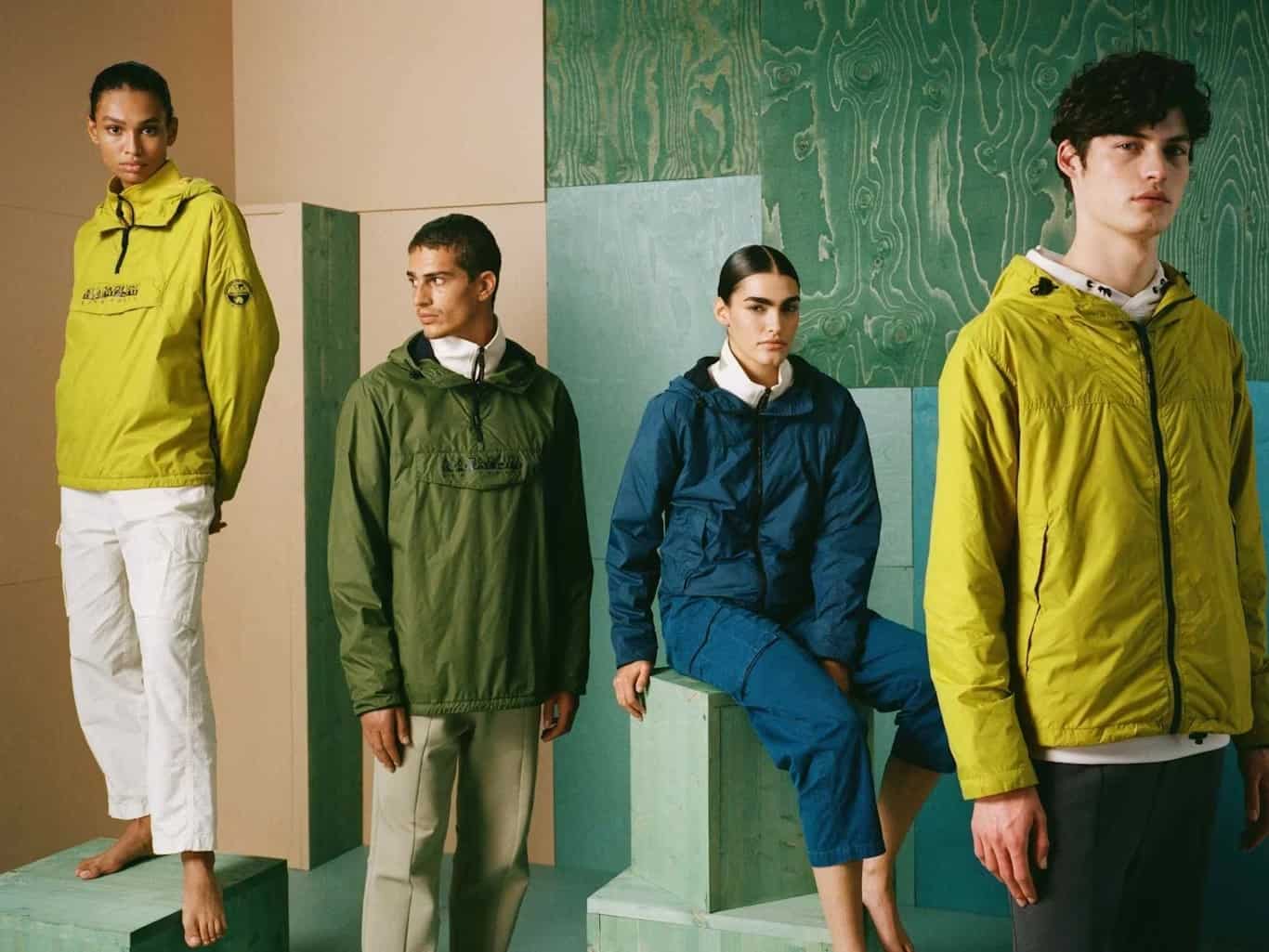
13. Hand wash
If you’re heading to a self-catering stay or off on a campervan adventure this summer, you might want to take your own cleaning supplies.
We’re loving Milly & Sissy who specialise in reusable, refillable aluminium bottles that you refill yourself from handy sachets.
The compostable sachets contain vegan friendly, 99% natural ingredients and are palm oil and paraben free. Mix it up with water for 500ml of hand wash.








